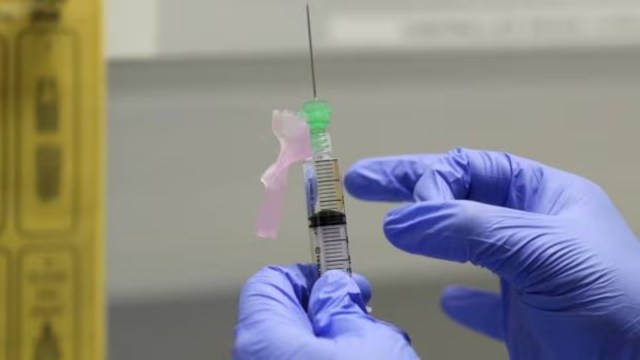Hyderabad conclave calls for stepping up efforts to reduce drug trials on animals
Even though animal-testing is being challenged on more than just ethical grounds, robust and clinically proven alternatives are necessary.
 The conclave, which began Wednesday and concluded Saturday, also featured presentations on the latest non-animal methods. (File)
The conclave, which began Wednesday and concluded Saturday, also featured presentations on the latest non-animal methods. (File) The Atal Incubation Centre at Hyderabad’s Centre for Cellular and Molecular Biology organised a conclave on reducing drug-related experiments and testing on animals and adopting technologically advanced human model systems.
The conclave was attended by stalwarts of the scientific community and biotech industries as animal experimentation is being challenged on more than just ethical grounds. It marked the culmination of a year-long study sponsored by the India Animal Fund to understand the adoption and financial impacts of using technologically advanced human model systems such as organoids and organ-on-chips, which have proved to be more effective in predicting human responses compared to animal-testing methods.
Among the participants was Dr YK Gupta, president of the All Indian Institute of Medical Sciences, Jammu, and the Society for Alternatives to Animal Experimentation-India. Considered as India’s leading authority on non-animal methodologies, Dr Gupta said, “No regulatory body will allow drugs for human usage unless they are tested on animals. We need to provide robust, clinically proven alternatives to animal-testing before we ask regulators, scientists and pharma industry to stop using animal toxicology models.”
Dr Madhusudhana Rao, CEO of the incubation centre, said the Centre for Predictive Human Model Systems had emerged as a think tank focused on science and policy to champion human-relevant methodologies and evolved into a prominent entity in spreading the word of microphysiological systems. It has taken a holistic approach to replacing animal toxicology models by engaging in awareness, education, training, research, policy and capacity development, he added.
Dr Vinay Nandicoori, director of the Centre for Cellular and Molecular Biology, said, “The number of animals used for bringing a single drug into human trials is alarmingly high. We hope that labs will adopt predictive human model systems soon to prevent this.”
Parag Agarwal, founder of the India Animal Fund, echoed his concerns, stressing that moving away from animal-testing is tightly linked with human well-being.
Dr Kasturi Mahadik, chief manager of the Centre for Predictive Human Model Systems, presented findings from the India Animal Fund-sponsored study of leading contract research organisations from India as stakeholders in advancing predictive human model systems and contributing to the evolution of human-centric research in the country. She highlighted challenges hindering the adoption of these technologies like the lack of awareness, training, collaborations with academia, local resources and an understanding of their economic viability.
A panel discussion, featuring Srinivas Neerukonda (executive director of Vimta Labs Pvt Ltd), Dr Jugnu Jain (Sapien Biosciences), Dr Subha Narayan Rath (professor at IIT Hyderabad) and others, brainstormed strategies to overcome the challenges.
The conclave, which began Wednesday and concluded Saturday, also featured presentations on the latest non-animal methods. The Centre for Cellular and Molecular Biology said the conclave’s success underscored the growing momentum and collective determination to prioritise human-relevant science in the country.







